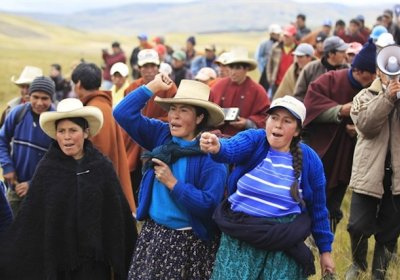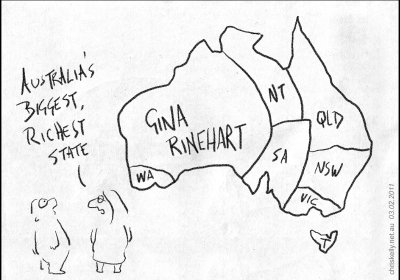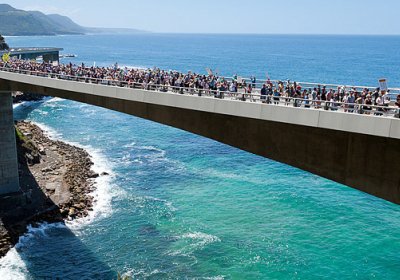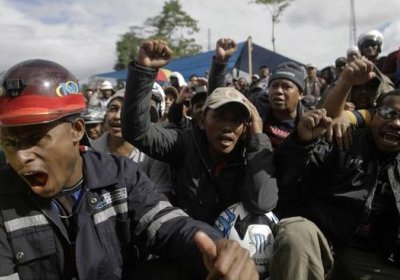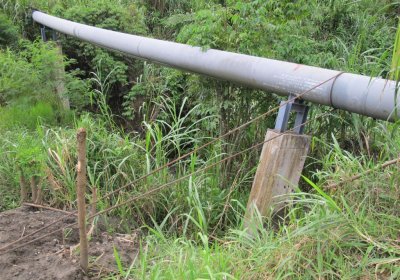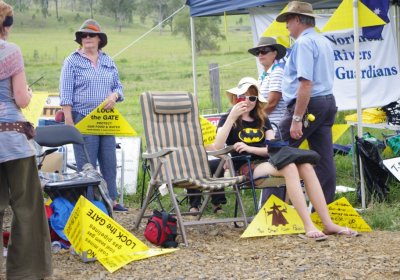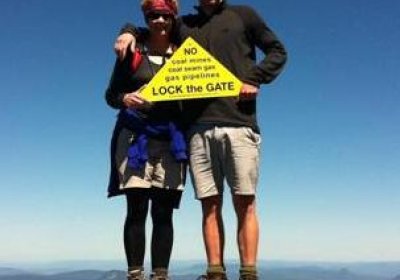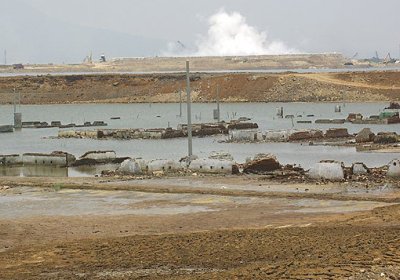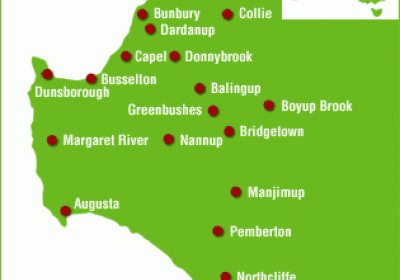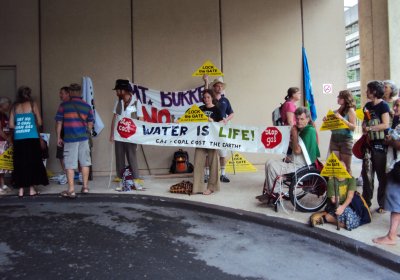The WA state government finally rejected Vasse Coal’s proposal for a coal mine in Margaret River on February 7. The mine would have been built 15 kilometres from the town centre, directly beneath the river.
Margaret River residents came out in force to oppose the proposal, as it posed a direct threat to water supply, biodiversity and air quality. Margaret River’s two main industries, agriculture and tourism, depend on the environmental health of the region.
Mining
Cajamarca, a town with tragic associations in Peruvian history, is the setting of another devastating imperialist onslaught.
In 1532, a band of Spanish conquistadores ambushed the Inca king Atahualpa in the central plaza of this Andean town.
The brutal spirit of conquista is alive and well in contemporary Cajamarca, in the form of the US-based Newmont mining corporation, an outfit with a slick PR machine and a very dirty environmental and human rights track record.
Nearly 10 years of a mining boom has made big changes to Australia’s economy and environment. Resource companies have made record profits.
This has given Australia’s rich mining billionaires an inflated sense of entitlement. When the Resources Super Profits Tax (RSPT) was proposed we saw Gina Rinehart speaking to an anti-tax rally from the back of a truck along with fellow billionaire Andrew Forrest, who wore a high-visibility work shirt as though he was just another struggling worker.
Stop CSG Illawarra released the statement below on February 2.
* * *
Stop CSG Illawarra members have decided to organise a community blockade if any work starts on the local coal seam gas (CSG) project. A meeting of local residents voted unanimously to take this course of action if needed.
Spokesperson Jess Moore said: “If the government won’t protect this community, we’ll have to do it for ourselves.
Deadly repression in Indonesia has refocussed attention on the role of Australian mining companies in human rights abuses in the country.
People of the Paniai region in Indonesian-occupied West Papua have lived in terror since November. The Australian government-trained “anti-terrorist” unit Detachment 88 (D88) and Brimob paramilitary force launched an offensive in the area that month to eliminate fighters from the Free Papua Movement (OPM).
Tensions were high after a prominent supporter of the controversial Ramu nickel mine near Madang in Papua New Guinea died suddenly on January 3.
This comes after the PNG Supreme Court rejected an appeal on December 22 against the decision to allow the Ramu mine operators to dump 100 million tonnes of toxic mine tailings into Basamuk Bay over 20 years.
Landowners in the Kerry Valley, near Beaudesert in south-east Queensland, have launched a peaceful blockade against Arrow Energy’s attempt to begin exploratory drilling for coal seam gas (CSG) in the Scenic Rim region.
The protest was organised by the community group Keep the Scenic Rim Scenic. The blockade follows the success of similar blockades against CSG drilling that took place in the Liverpool Plains and Gloucester last year.
Anti-coal seam gas community group Keep the Scenic Rim Scenic released the press release below on January 10.
* * *
Scenic Rim landowners are claiming victory after a drill rig was withdrawn from the region — they believe operator Arrow Energy was concerned about a possible blockade of its coal seam gas operation in the Kerry Valley.
The infrastructure arrived on the site, just south of Beaudesert, three days ago, but was pulled out this morning before drilling could begin.
In the face of a broad and growing campaign, rhetoric from the NSW government is beginning to match some of the risks when it comes to coal seam gas (CSG) mining. This begs the question: what is being done when it comes to CSG?
In an interview about CSG mining on December 1, NSW Premier Barry O’Farrell told 2GB’s Alan Jones: “I don’t intend to allow — particularly after the drought we went through over a decade — mining or any other activity to threaten water resources.
Australian energy company Santos has met determined resistance to its coal seam gas operations in Australia. It is less well known that Santos was one of the companies responsible for a monumental environmental catastrophe in Indonesia in 2006. The accident drowned villages in the Porong subdistrict of Sidoarjo in mud, and displaced up to 50,000 people.
A “controlled burn” by the Department of Environment and Conservation (DEC) got way out of control in south-west Western Australia on November 23, turning into a raging bushfire that destroyed thirty homes and was still not under control days later. Suburbs affected include Gnarabup and Prevelly. Hundreds of people have been evacuated from their homes.
“People are joining up to the Lock the Gate Alliance all over the country,”, Lock the Gate president Drew Hutton told a rally of about 100 outside Brisbane’s Sofitel Hotel on November 24.
The rally was called to protest at the annual general meeting of coal seam gas (CSG) company LNG Ltd. The company’s AGM took place inside the hotel.
Hutton said: “The Lock the Gate Alliance is now moving to ‘Block the Gate’. We are calling on groups all over Australia to blockade wherever CSG companies are setting up, against the wishes of the farmers and landholders.
- Previous page
- Page 38
- Next page

